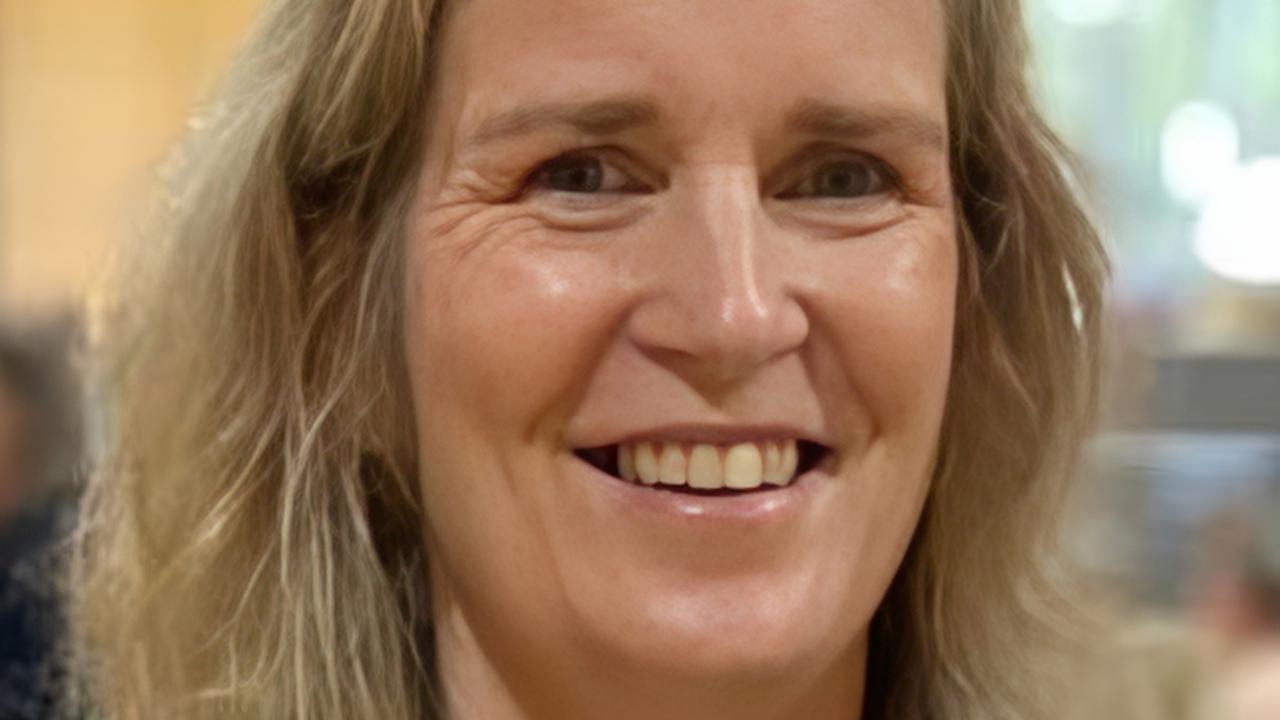How sexual predators are using social media and dating apps to target women and children in Australia
Horrifying cases have shown how sexual offenders are using social media and dating apps to target women and children in Australia.

Horrific acts of sexual violence committed by men who targeted women and children through dating apps and social media have been revealed in a recent spate of crimes.
The Australian research that examined the rise in these abhorrent cases is nothing short of shocking.
Researchers have identified men who target single parents on dating apps to access their children, along with others who prowl social media and dating apps to meet women and children with sickening premeditated agendas.
Experts say tech companies are failing to keep users safe and are providing a platform for pedophiles to meet kids
Perth man Muhammad Zain Ul Abideen Rasheed, 29, was jailed for 17 years in August last year in what authorities described as one of the worst sextortion cases in history.
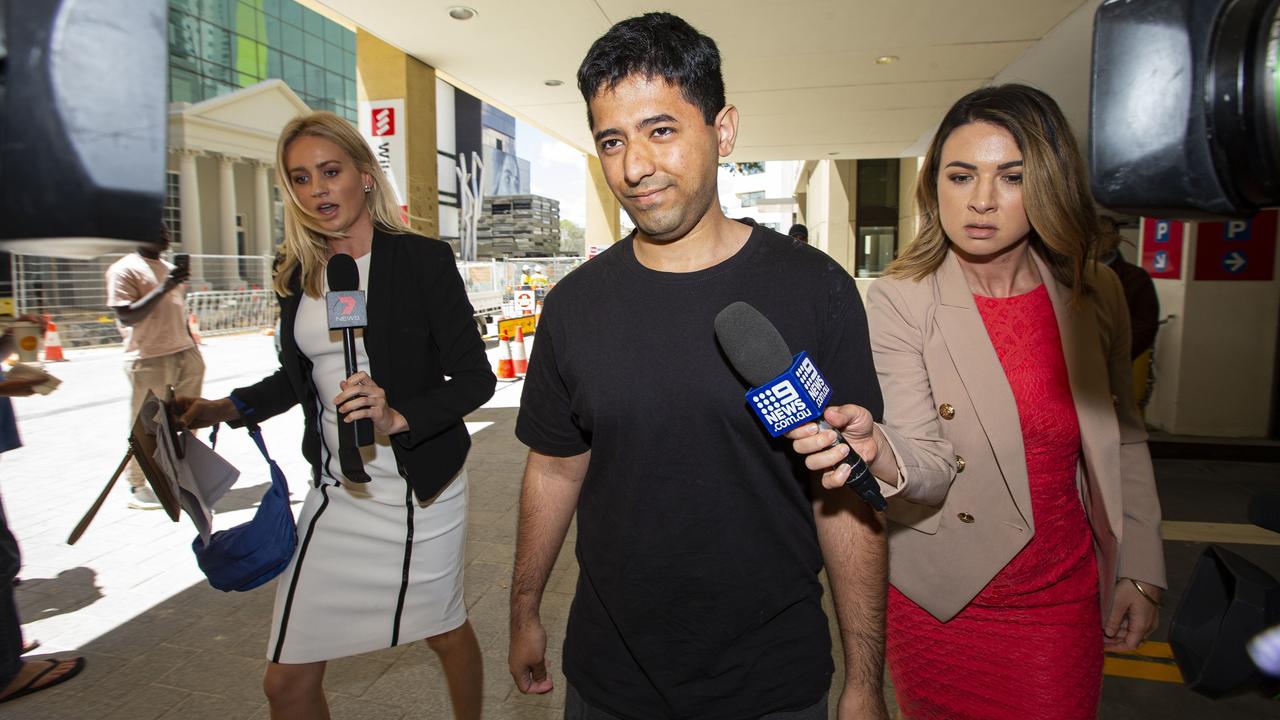
Rasheed blackmailed 286 young adults and children from 20 different countries, including 186 children aged under 16.
His offending came to the attention of Australian Federal Police (AFP) who were tipped off about his Instagram use by the US Department of Homeland Security and Interpol in June 2019.
Rasheed pretended to be a 15-year old international YouTube star to befriend children and young adults on Instagram. He then sexually abused them from the bedroom of his family home.
He repeatedly encouraged and threatened his victims to respond to questions about his sexual fantasies, then gained control of his victims using threats.
Rasheed demanded explicit images and videos that involved sexual acts with friends, siblings, family pets and objects that were recorded or broadcast live to other adults on the internet he invited to watch.
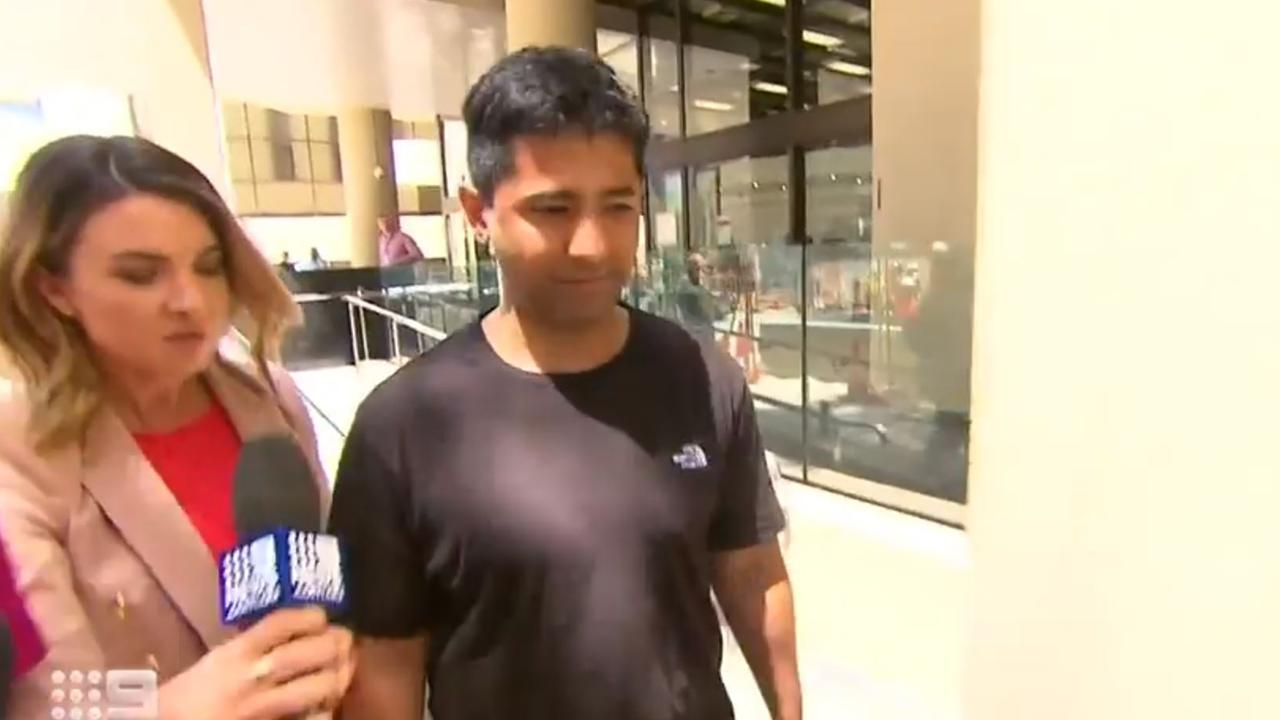
Australian Centre to Counter Child Exploitation Detective Inspector Kurt Wesche said Rasheed was one of the most prolific online sex offenders they had identified in Australia.
In 2023, Australian Federal Police responded to about 300 reports of sextortion a month. This has now dropped to 100 cases a month.
Inspector Wesche said authorities had shut down 1800 financial accounts linked to sextortion offending since 2022.
He said financial sextortion usually targeted boys aged 14 to 16, and offenders were more likely offshore and not Australian.
“Offenders look at prominent online pages or social media accounts that children follow or comment on, then find the children’s social media accounts to contact them through,” Inspector Wesche said.
“They establish a common link with the child or develop rapport through conversations.
“They often look to move them to different messaging applications that children might not be as familiar with, and that just makes it easier for the offender to target them.”
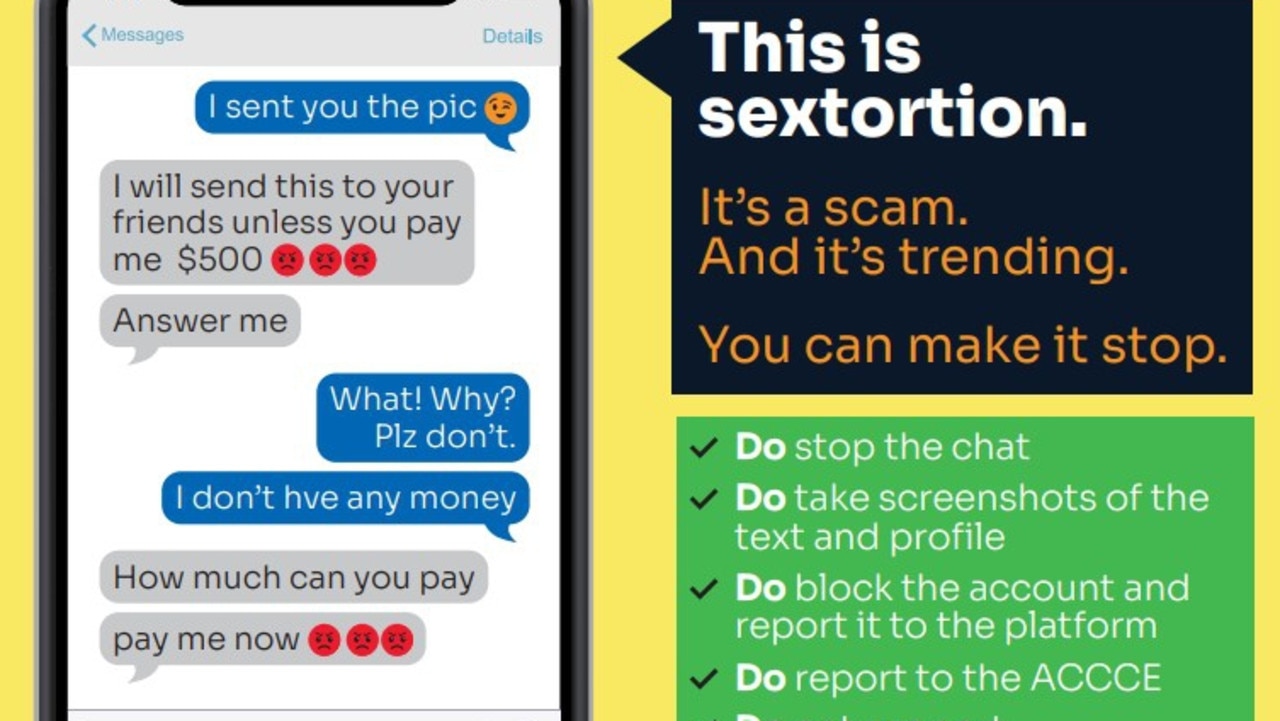
Inspector Wesche said once offenders made contact with victims it could escalate quickly and within 30 minutes a child was sharing intimate material, which progressed to threats.
He said offenders threatened victims with disseminating material the child’s produced to their friends and family and could easily make up to $500 from victims purely through sextortion.
Inspector Wesche said victims were left with lifelong trauma that had resulted in suicide overseas.
“The important message we try to reinforce through our programs, and through the media, is that victims and the children are not to blame,” he said.
“They’re being targeted by sophisticated offenders, it’s not their fault, it’s really important we reinforce that.”

Australian research also found pedophiles specifically targeted single parents through dating apps to access and sexually abuse their children.
An Australian Institute of Criminology (AIC) survey revealed 12 per cent of respondents were parents who had been asked for sexual or naked photos of their children or were asked inappropriate questions about them.
Geelong man Stuart Murray, 45, was jailed for four months in March after he told a woman he met on a dating app that he was sexually interested in children and tried to engage her in fantasy role play based on the abuse of children.
The woman tipped off authorities who linked Murray to illegal online child exploitation activity.
Police raided his home and found child abuse material on his mobile phone in December.
Murray was charged with using a carriage service to groom a person to procure a child aged under 16 to engage in sexual activity and possessing child abuse material.
UNSW Childlight director Michael Salter said men who sexually abused children were more likely to use dating apps than men who don’t.
A Childlight study found 66 per cent of male offenders against children used dating platforms, and 22 per cent used them daily.
In comparison, less than 30 per cent of men who had no sexual feelings or offences against children had ever used a dating app, with only 8.1 per cent using them daily.
Professor Salter said broader evidence showed dating apps were a way for men with a sexual interest in children to approach single parents.
“They’re grooming single parents and asking outright for nude or sexual images of their kids,” he said.
“We have a type of victimisation where the offender then meets with the woman, the single parent offline, starts a relationship but with the intention of accessing and sexually abusing her children.”

Professor Salter analysed convicted cases in Australia where parents had manufactured sexual images and videos of their children.
He found 10 per cent of prosecuted cases in Australia were single mums who manufactured images or videos of their children for online boyfriends they had never met.
“Obviously, most parents would never agree to this, most parents would be appalled,” he said.
“But we know offenders are approaching so many single parents online there’s a kind of a fishing effect. If you throw your line in, eventually you’re going to catch a fish.
“Unfortunately, we have a small cohort of people on dating apps who are susceptible to the grooming strategy.”
Professor Salter said their data showed offenders who had premeditated agendas and used dating apps were more likely to be active on the dark web as well.
During his research he uncovered a “pedophile’s manual” on the dark web that contained eight pages of techniques to approach single mums on dating apps and instructions on how to groom them to provide access to their children.
“Offenders have got quite detailed instruction manuals about how to use dating apps to abuse kids,” he said.
“It’s a type of domestic violence and a type of coercive control, but it’s different and it has different motivation behind it.
“We need to raise awareness for single mums, which is really sad, but we do need to do that and we need to raise awareness for the domestic violence response that we’re also dealing with a cohort of pedophiles.”

Professor Salter said child sexual abuse was a massive problem on dating apps, and the dating app sector urgently needed to be much better regulated.
“If you shut down opportunities to abuse kids, then you keep more kids safe,” he said.
“The risk profile on dating apps is too high, it’s just really important for people to understand.
“It’s important for the government and technology sector to understand if you create a loophole for offenders, they find it very quickly, and once you close that loophole down they move away very quickly.”
Professor Salter said while there was an issue with dating apps and sexual violence against women, there was a serious issue with sexual violence against children.
“Essentially, dating apps are such a high-risk site as long as people can use them anonymously. As long as their behaviour on the dating app is unlikely to attract legal consequences, the apps are always going to be appealing to premeditated offenders,” he said.
“That’s the situation that we have at the moment.”

In January, ex-soldier Adam Lusk, 46, was sentenced to 28 years for drugging and raping 12 women, including two teenage girls, he met on dating apps and sugar daddy sites over two years.
Lusk filmed himself performing abhorrent acts on his victims after he stupefied them unconscious and kept the videos for his own self-gratification.
His dating profiles showed he was younger than his true age and presented himself as someone “very appealing,” “likeable” and a person his victims would have felt safe with.
Perth dentist Farzam Mehrabi, 34, was jailed for 15 years in December after he drugged and raped six women aged between 18 and 22 he met on dating apps in 2022.
Many of the incidents occurred at his parents’ home in Shelley, in Perth’s south, where Mehrabi lived at the time.
He also lied about his age, telling his victims he was much younger than he was.

The AIC surveyed about 10,000 people and found 73 per cent had experienced at least one form of sexual violence online.
One third of respondents reported being physically assaulted by a person they met on a dating app, and 27 per cent had been sexually assaulted or coerced in person.
The survey found 45 per cent of people who experienced online sexual violence through mobile dating apps also experienced sexual violence in person.
AIC criminologist Sarah Napier said the figures were concerning.
Dr Napier said dating apps and social media platforms had a responsibility to protect their users because many people thought they were a safe way to meet people.
“But as we’ve seen from this evidence, and court cases, it’s really not the case,” she said.
“The dating app companies are providing a platform for people to actually connect with others, they’re the ones that have this huge responsibility to actually ensure their users are doing this in a safe way and are protected in any way possible.
“Identity verification measures are really important, they don’t have identity verification measures at the moment.
“They could do more with the tech features on their apps, looking at ensuring the reporting of sexual violence and exploitation is really easy to use, and that they get a response straight away and that they give them the right resources to go to.”
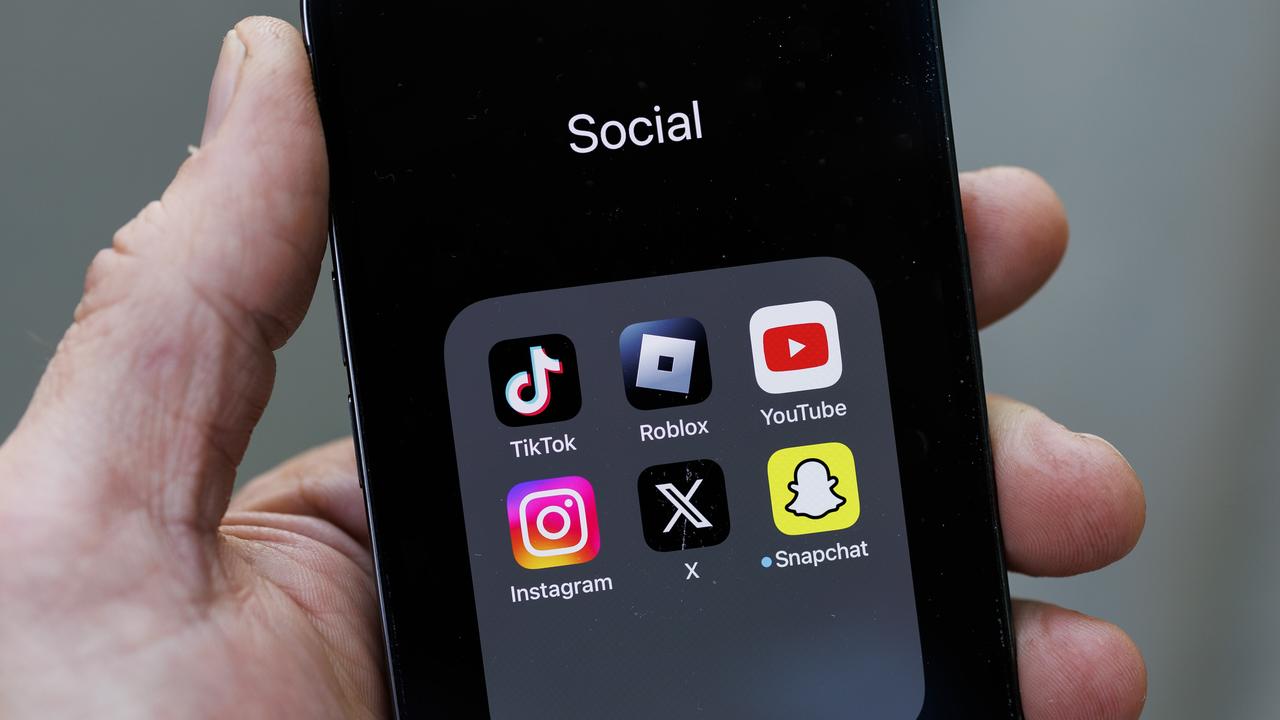
Dr Napier said their research revealed about 9 per cent of people used a dating app before they were 18 years old and had received a sexually exploitive request from another user who knew they were under 18.
“We know predators are going on dating apps, realising that kids are using them,” she said.
“When you join a dating app, you have to click that you’re over 18, but there’s no other verification method to check if that person is telling truth.
“They are using dating apps but they’re developmentally unable to understand the risks involved in that and that they might be connected with someone who’s three times their age and could be quite dangerous.”
Dr Napier said half of the respondents in their dating app study who were subjected to violence through a dating app or in person had been blocked or unmatched by the perpetrator after the incident or the perpetrator deleted their account.
“It shows there are some functions in these apps or sites that really benefit the perpetrator and allow them to just disappear without protection, that really needs to stop,” she said.
The AIC conducted a similar survey with 2000 Australian teens aged 16 to 18 that found 11 per cent of respondents had been sextorted.
“The kids who said that they had been sexually extorted, 50 per cent said that they met the perpetrator on Snapchat,” Dr Napier said.
“Snapchat is really popular platform for kids and predators know that, so they are going on Snapchat, pretending to be kids and tricking other kids into sex, sending sexual photos and then threatening to expose those photos if they don’t give them money or more photos or do some sort of sexual favours for them.
“It’s a real problem.”

Social media and dating app companies have taken steps to improve safety for users on their sites and provide resources to members.
A Snapchat spokesman said they had zero tolerance for predators abusing people on their platform and constantly worked to fight the horrific activity.
The spokesman said they used detection tools to find and remove these types of criminals and worked around the clock to support law enforcement investigations.
“We offer extra safeguards for teens to protect against unwanted contact and don’t offer public friend lists, which helps prevent predators from targeting a teen’s friends,” the spokesman said.
“We also want to help young people learn the signs of sextortion and have launched an education campaign with the AFP’s Australian Centre to Counter Child Exploitation to raise awareness of how to spot and report it.”
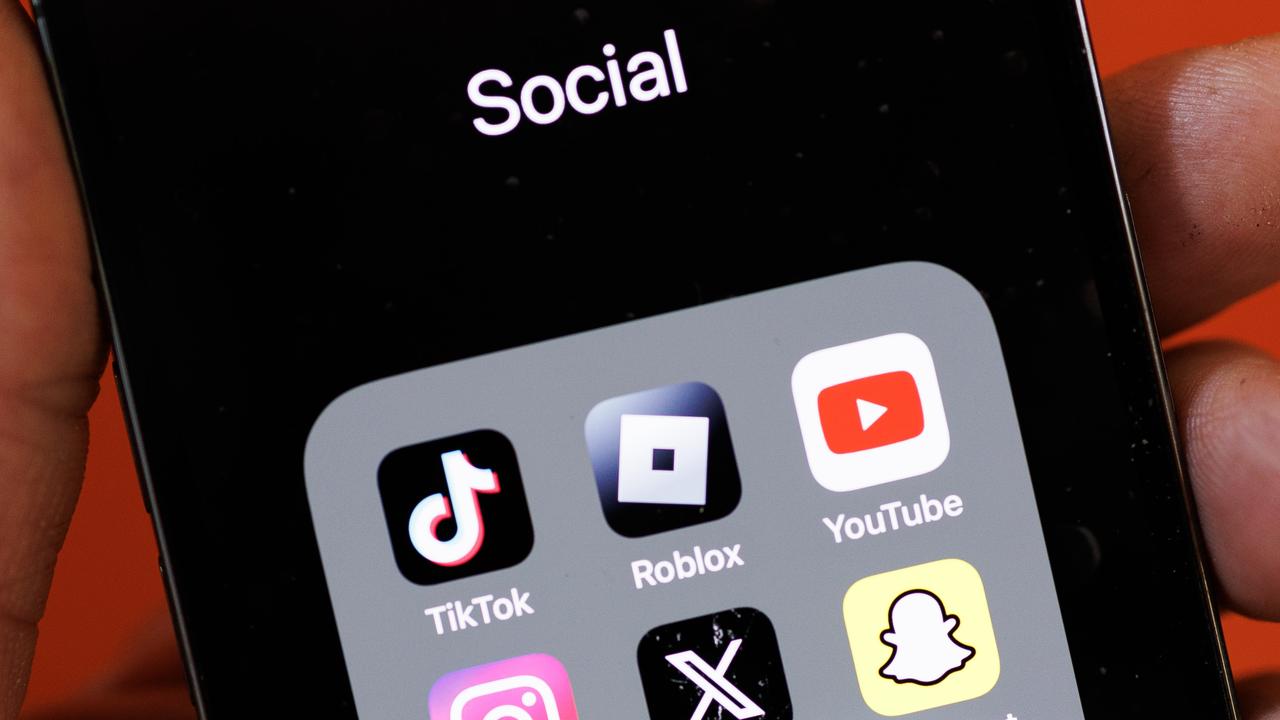
Meta confirmed it had policies against child nudity, abuse and exploitation, child sexualisation (both explicit and implicit) and inappropriate interactions with teens.
The organisation removes accounts that are dedicated to sharing otherwise-benign images of minors, when the captions and comments are predominantly focused on the children’s appearance.
It also has technology to remove violating content and prevent suspicious adults from finding or interacting with teens on their apps.
Last year, Meta introduced Instagram Teen Accounts, which has built-in protections that limit who can contact teens and the content they see.
More than 54 million teens use the teen account setting, and 97 per cent of Instagram users aged 13-15 have stayed in these built-in restrictions
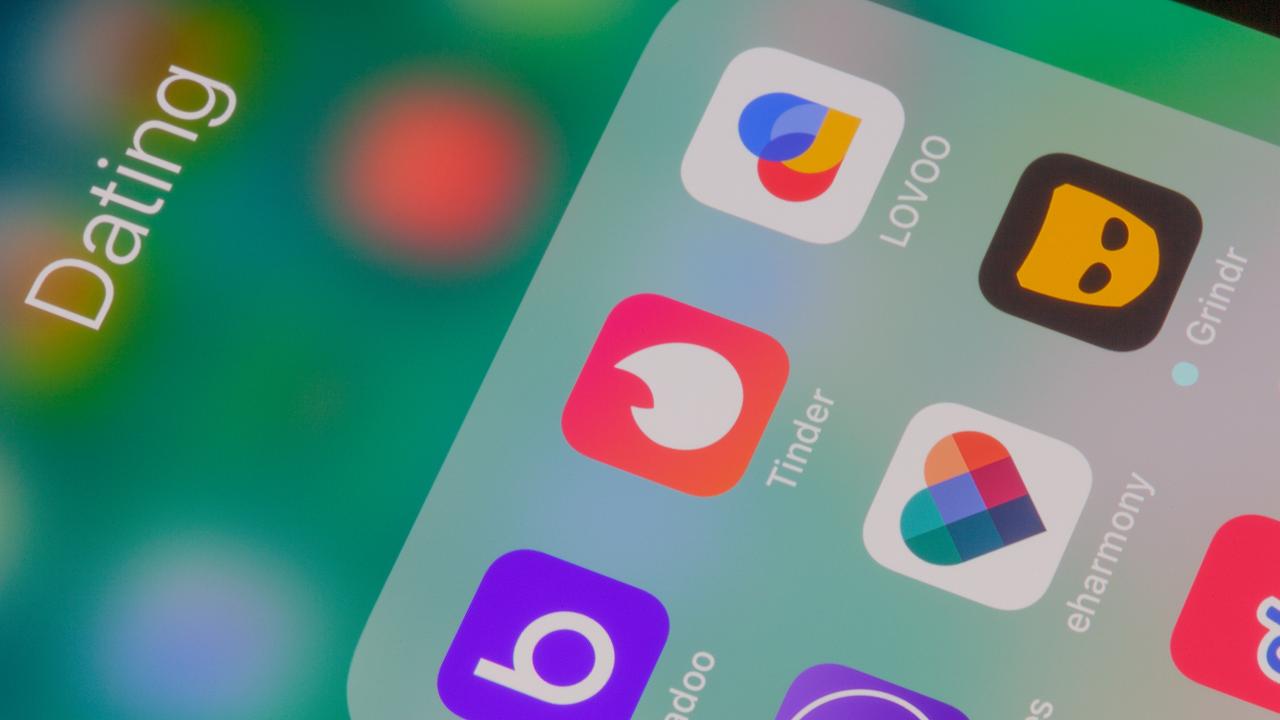
A Tinder spokesman said they had launched more than 20 safety tools, including Share My Date and ID Verification, and built a reporting structure to take action across their platform when needed.
The spokesman said they had invested in tech to detect and remove underage users from the app, including a blue checkmark users can look for to confirm age and identity.
“We encourage users to report any and all behaviour that violates our community guidelines,” the spokesman said.
“Our teams use a combination of automated tools and human moderation to help remove bad actors, and we co-operate with law enforcement when a crime has been committed.”
A Bumble spokesman said users could verify their identify with government ID, share date details with contacts outside of the app and use a deception detector to weed out fake profiles to prevent harm.
“Bumble is investing in a safer dating experience by ensuring every interaction starts on a foundation of authenticity, creating a more positive, empowering dating environment for everyone,” the spokesman said.
Dr Napier said a lot of the platforms used end-to-end encryption, so they didn’t even know what was happening in private messages.
“There’s so much more they could do to actually protect the users from harm, especially children, because there are serious crimes being committed on their platforms and they need to do something about it.”

